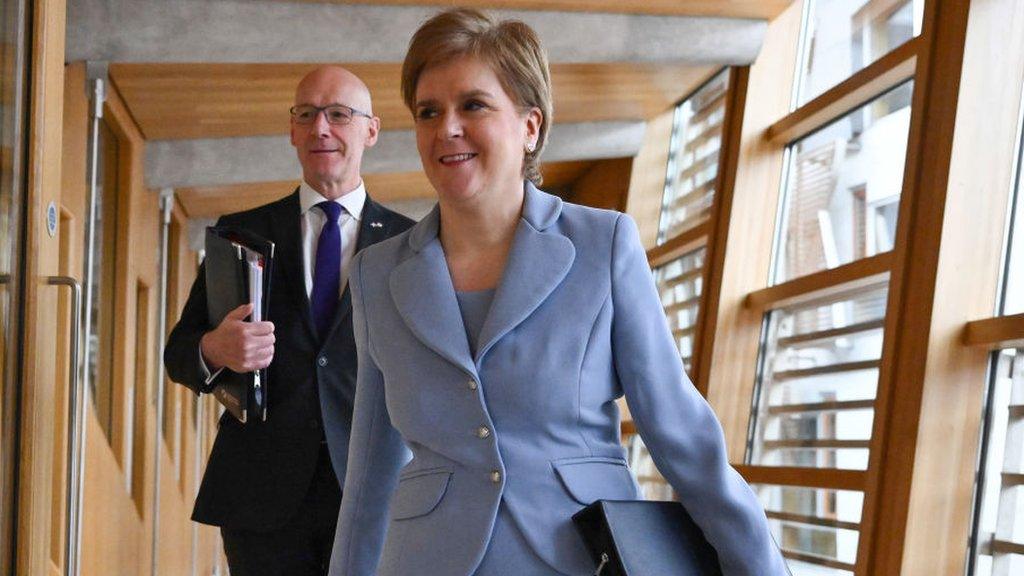Supreme Court to rule on indyref2 powers next week
- Published
- comments
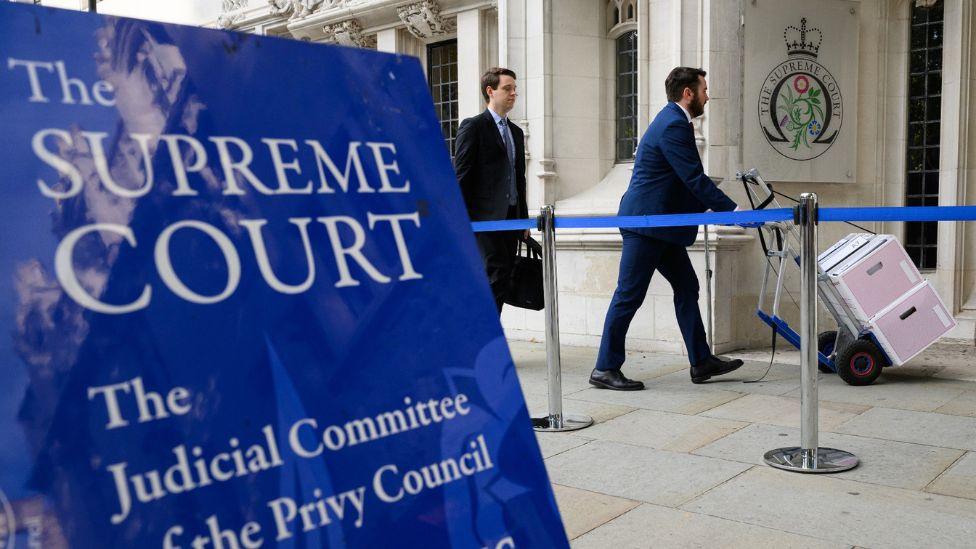
The Supreme Court will deliver its judgement next Wednesday on whether the Scottish Parliament can hold a second independence referendum without Westminster's approval.
The UK's highest court heard arguments in the case last month.
The Scottish government said a referendum would fall within devolved powers, but the UK government said it was a reserved matter.
The decision will be delivered at 09:45 on Wednesday 23 November.
Scotland's lord advocate, Dorothy Bain KC, referred the case to the Supreme Court due to uncertainty over whether Holyrood could legislate for a second independence referendum while this was opposed at Westminster.
The judgement on Holyrood's proposed Scottish Independence Referendum Bill will come six weeks after the two-day hearing on 11 and 12 October.
The Supreme Court's senior judge, Lord Reed, warned at the time that it could be "some months" before a ruling is reached in the case.
He said the arguments heard in court were just the "tip of the iceberg", with more than 8,000 pages of written material to consider.


This is a comparatively quick turnaround from the court, six weeks on from the hearing - although we shouldn't read anything into what that means for the judgement.
There are three possible outcomes: the judges let MSPs pass a referendum bill; they block them from doing so; or they refuse to make a ruling either way.
Obviously the Scottish government has fingers and toes crossed for a green light.
But the UK government side spent much of the hearing last month arguing for no ruling at all, hoping to leave Scottish ministers in an awkward limbo.
That underlines that this case won't necessarily settle the vexed question of indyref2 once and for all.
Even if judges do make a ruling, that still only tells us whether there can be a referendum, in strict legal terms. There would still need to be a political settlement over whether there should be a vote next October.
So regardless of the result, the case is sure to tee up an almighty political clash between ministers in Edinburgh and London.

Ms Bain, the Scottish government's top law officer, argued that a referendum would be "advisory" and would have no legal effect on the Union.
She told the court that while Scottish ministers might have the "subjective intention" of independence, the bill itself would be objectively neutral.
But Sir James Eadie KC, the UK government's independent barrister on legal issues of national importance, said it was "obvious" that the bill related to reserved matters and the Union.
He said that meant it would fall outside of the competence of the Scottish Parliament, and argued that the Supreme Court should not rule on the case.
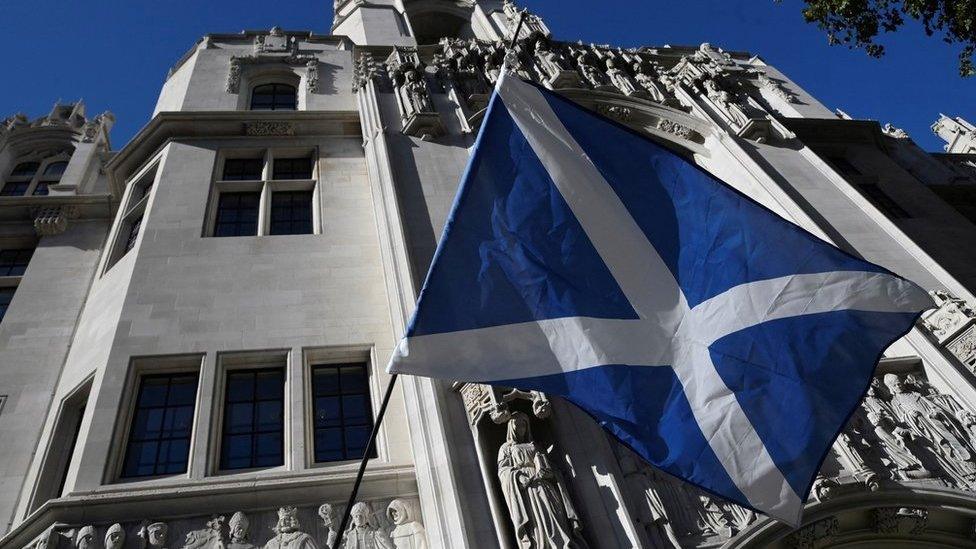
When Scotland held an independence referendum in September 2014, voters backed staying in the UK by 55% to 45%.
First Minister Nicola Sturgeon has made repeated attempts to push for another vote, but there has been no agreement with the UK government.
In June, Ms Sturgeon unveiled what she called a "refreshed" case for independence and said her government had an "indisputable mandate" for a second referendum, which she wants to hold on 19 October 2023.
But if the Supreme Court ruling goes against her, she has said she would use the next election as a "de facto referendum" and attempt to use the result to trigger independence negotiations.
Prime Minister Rishi Sunak has given no indication that he is likely to grant formal consent for a second vote.
- Published17 October 2022
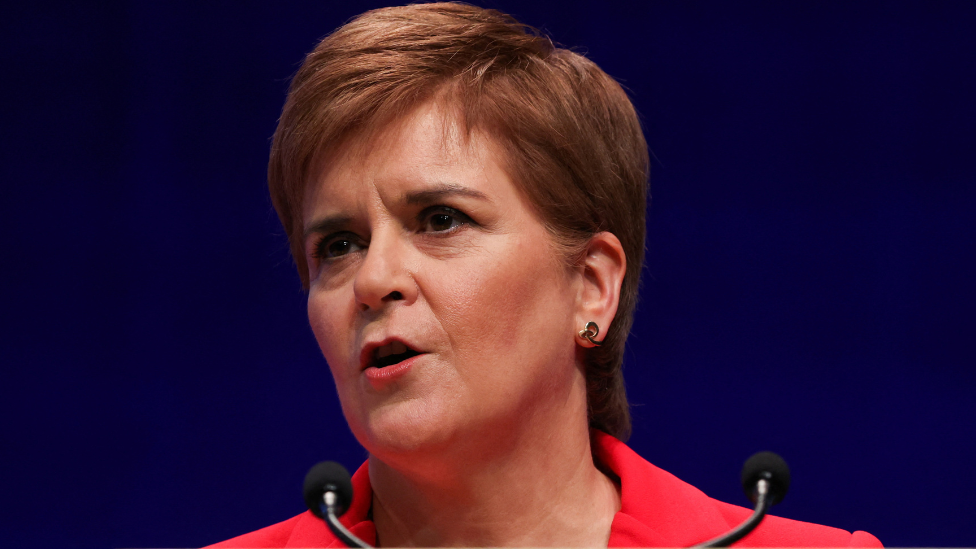
- Published12 October 2022
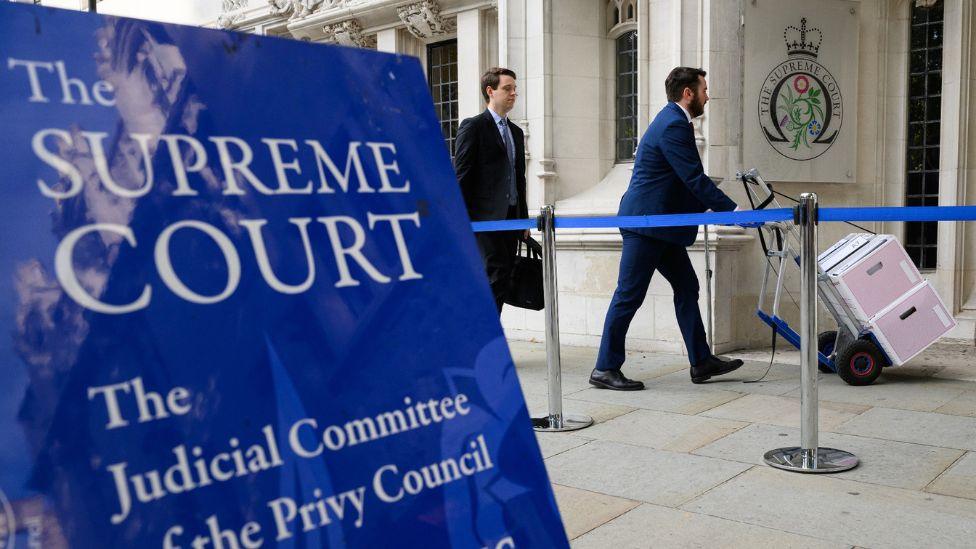
- Published11 October 2022

- Published23 November 2022
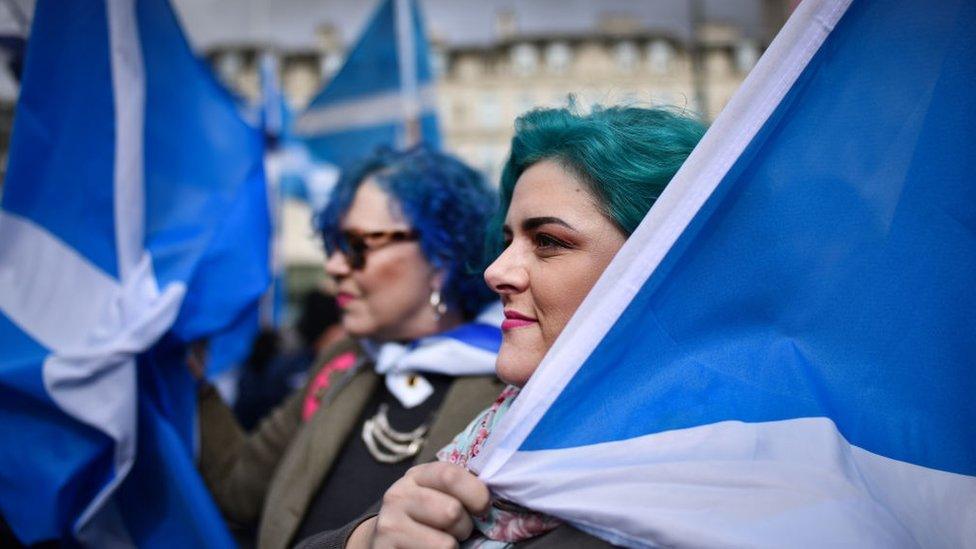
- Published28 June 2022
